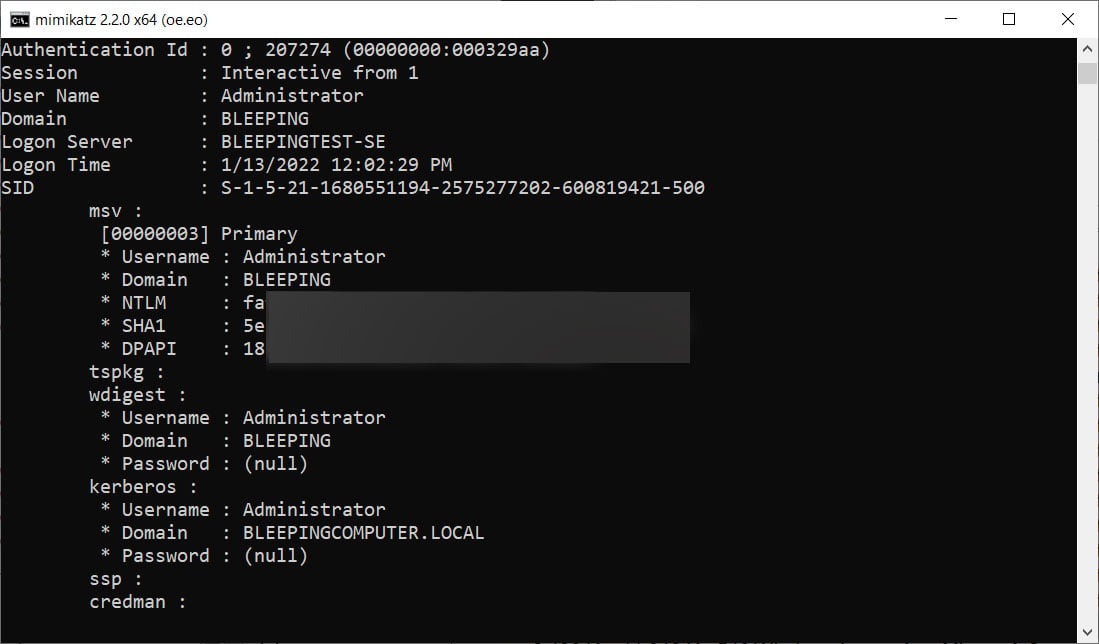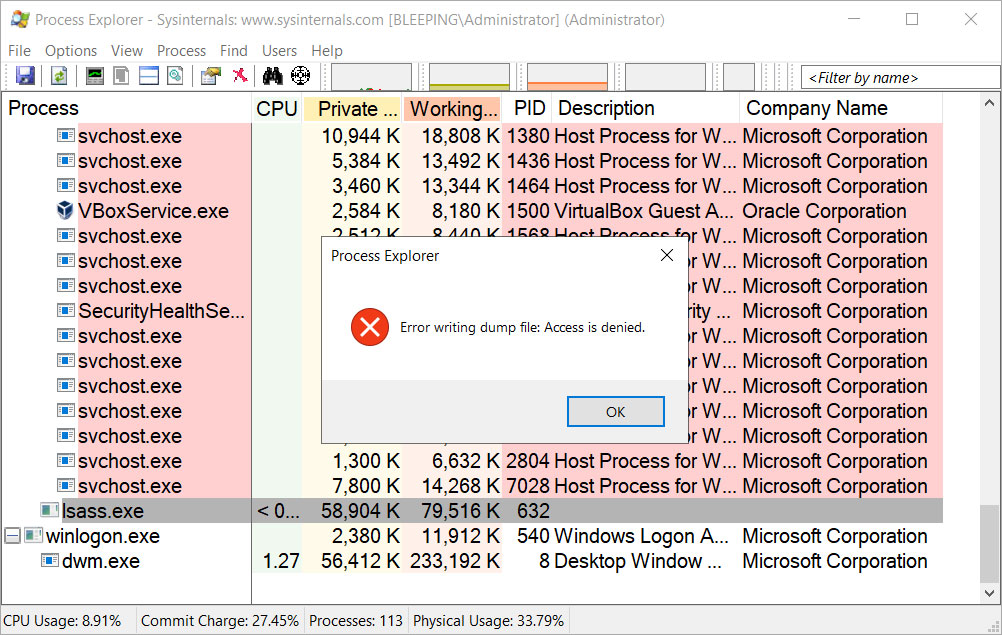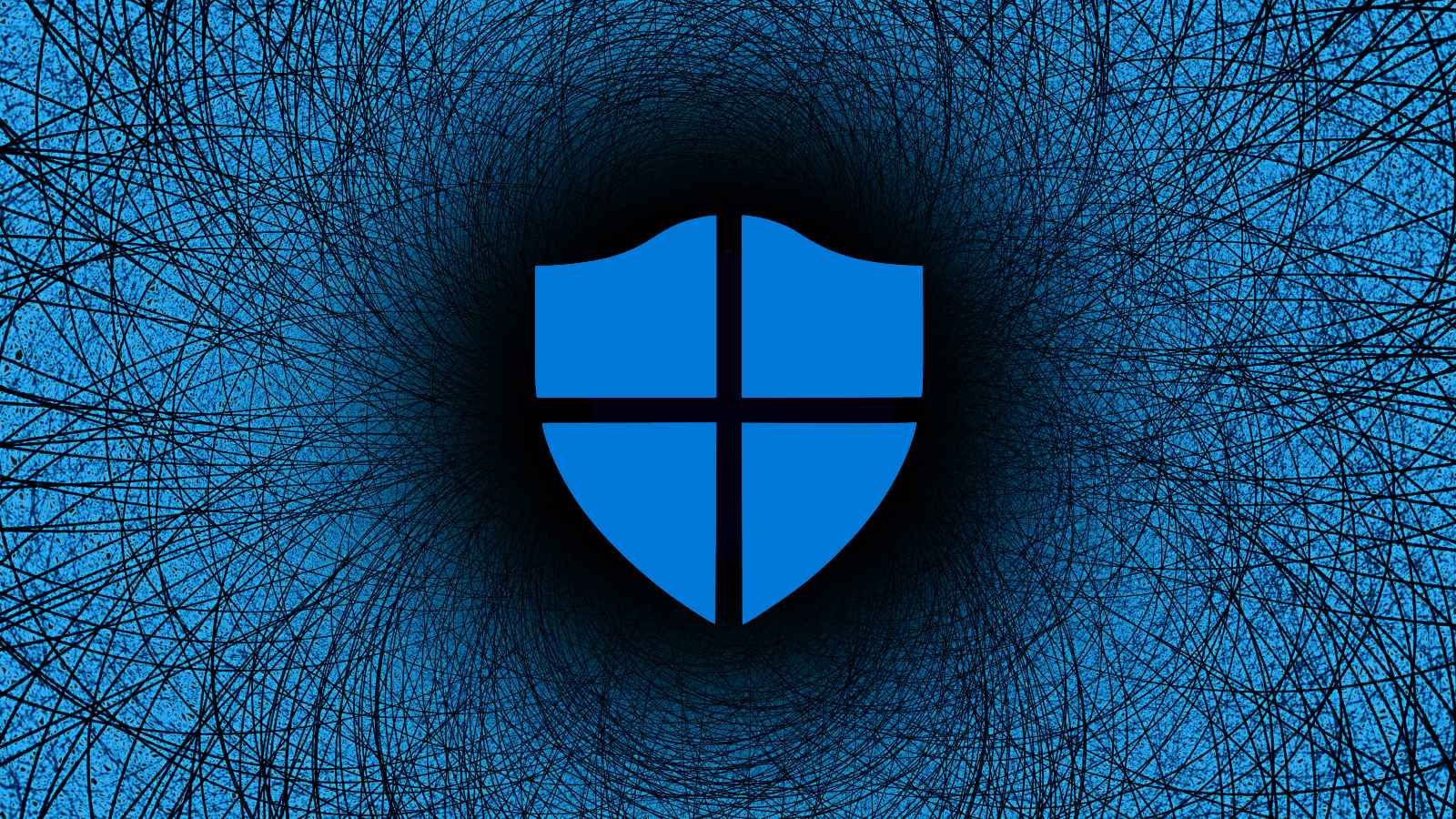Microsoft is enabling a Microsoft Defender 'Attack Surface Reduction' security rule by default to block hackers' attempts to steal Windows credentials from the LSASS process.
When threat actors compromise a network, they attempt to spread laterally to other devices by stealing credentials or using exploits.
One of the most common methods to steal Windows credentials is to gain admin privileges on a compromised device and then dump the memory of the Local Security Authority Server Service (LSASS) process running in Windows.
This memory dump contains NTLM hashes of Windows credentials of users who had logged into the computer that can be brute-forced for clear-text passwords or used in Pass-the-Hash attacks to login into other devices.
A demonstration of how threat actors can use the popular Mimikatz program to dump NTLM hashes from LSASS is shown below.

Source: BleepingComputer
While Microsoft Defender block programs like Mimikatz, a LSASS memory dump can still be transferred to a remote computer to dump credentials without fear of being blocked.
Microsoft Defender's ASR to the rescue
To prevent threat actors from abusing LSASS memory dumps, Microsoft has introduced security features that prevent access to the LSASS process.
One of these security features is Credential Guard, which isolates the LSASS process in a virtualized container that prevents other processes from accessing it.
However, this feature can lead to conflicts with drivers or applications, causing some organizations not to enable it.
As a way to mitigate Windows credential theft without causing the conflicts introduced by Credential Guard, Microsoft will soon be enabling a Microsoft Defender Attack Surface Reduction (ASR) rule by default.
The rule, ' Block credential stealing from the Windows local security authority subsystem,' prevents processes from opening the LSASS process and dumping its memory, even if it has administrative privileges.

Source: BleepingComputer
As Attack Surface Reduction rules tend to introduce false positives and a lot of noise in Event Logs, Microsoft had previously not enabled the security feature by default.
However, Microsoft has recently begun to choose security at the expense of convenience by removing common features used by Admins and Windows users that increase attack surfaces.
For example, Microsoft recently announced that they would prevent VBA macros in downloaded Office documents from being enabled within Office applications in April, killing off a popular distribution method for malware.
This week, we also learned that Microsoft had begun the deprecation of the WMIC tool that threat actors commonly use to install malware and run commands.
Not a complete solution but a great start
While enabling the ASR rule by default will significantly impact the stealing of Windows credentials, it is not a silver bullet by any means.
This is because the full Attack Surface Reduction feature is only supported on Windows Enterprise licenses running Microsoft Defender as the primary antivirus. However, BleepingComputer's tests show that the LSASS ASR rule also works on Windows 10 and Windows 11 Pro clients.
Unfortunately, once another antivirus solution is installed, ASR is immediately disabled on the device.
Furthermore, security researchers have discovered built-in Microsoft Defender exclusion paths allowing threat actors to run their tools from those filenames/directories to bypass the ASR rules and continue to dump the LSASS process.
Mimikatz developer Benjamin Delpy told BleepingComputer that Microsoft probably added these built-in exclusions for another rule, but as exclusions affect ALL rules, it bypasses the LSASS restriction.
"For example, if they want to exclude a directory from the rule, "Block executable files from running unless they meet a prevalence, age, or trusted list criterion," it's not possible for this rule only. Exclusion is for ALL of the ASR rules... including LSASS access", Delpy explained to BleepingComputer in a conversation about the upcoming changes.
However, even with all of these issues, Delpy sees this change as a major step forward by Microsoft and believes it will significantly impact a threat actor's ability to steal Windows credentials.
"It's something we have asked for years (decades?). It's a good step and I'm very happy to see that + Macro disabled by default when coming from the Internet. We now start to see measures really related to real world attacks," continued Delpy.
"There is no legitimate reason to support a process opening the LSASS process... only to support buggy / legacy / crappy products - most of the time - related to authentication :')."
BleepingComputer has reached out to Microsoft to learn more about when this rule will be enabled by default but has not heard back.
Microsoft is making it harder to steal Windows passwords from memory
- aum, DKT27 and psyko666
-

 3
3



3175x175(CURRENT).thumb.jpg.b05acc060982b36f5891ba728e6d953c.jpg)
Recommended Comments
There are no comments to display.
Join the conversation
You can post now and register later. If you have an account, sign in now to post with your account.
Note: Your post will require moderator approval before it will be visible.